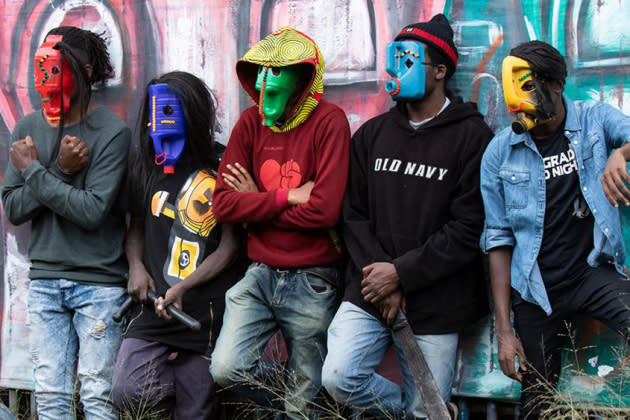Industry Professionals Look to Bolster African VR Ecosystem

Following the launch of startups in Kenya and South Africa in 2015, and the victory of Nigerian filmmaker Joel Kachi Benson’s “Daughters of Chibok” at Venice’s VR competition in 2019, industry eyes have looked to the African XR ecosystem with ever-growing interest.
Some of that interest, however, has been a little short-sighted, so speakers at a NewImages panel about the growing African ecosystem made sure to set the record straight.
More from Variety
London's National Gallery, Fat Red Bird Partner for VR Series '(Hi)Story of a Painting' (EXCLUSIVE)
XR Studio Lucid Realities Sees Gold in Museum Distribution Market
“Over the years, there’s been a refocus on the African continent, with a lot of talk about its market and population,” said Judith Okonkwo, founder of Lagos-based creation lab Imisi 3D. “We want to shift that narrative… [Not to be seen] as consumers but as creators of technology for the globe as well.”
Speaking with French Institute in South Africa’s Erika Denis, Okonkwo outlined a number of recent initiatives put in place to bolster the production infrastructure, and detailed the path that could take participants in local student AR/VR hackathons to positions of significant access and opportunity.
The tech founder also spoke highly of the Africa XR Report, a collaborative overview of industry activities across the continent due to be published later this year. “There’s a dearth of information when it comes to what’s happening with XR,” Okonkwo explained. “People from other parts of the world are curious, but they don’t know where to find the information.”
Other panelists echoed their enthusiasm for the report.
“There’s a huge digital culture, and an even bigger digital divide,” said Brian Afande, co-founder and managing director of BlackRhino VR. “There’s a lot of people working in silos; the XR report highlights some of these stories and gives information in terms of who’s doing what.”
Afande, whose Nairobi-based production company partnered with Germany’s INVR.SPACE for the urban exploration project “African Space Makers” (pictured above), also stressed the benefits of international co-production with both European and African outfits.
“There’s a lot of knowledge transferred within those agreements [that goes both ways],” he explained. “We need to demystify the fact that Africans right now will, can and are exporting knowledge and solutions.”
Asked how to further bolster the production ecosystem, Ingrid Kopp, co-founder of South African nonprofit incubator Electric South, pointed out an ironic quirk of the current funding system.
“There’s been a lot of funding of work around the work itself,” Kopp explained. “We’ve been able to fund our workshops and some of the distribution and festival work that we do. But [if the artists cannot make their projects] all the other things are pointless.”
“Going forward, we really need people to have faith in the artists,” Kopp added. “If you leave everything to the technologists, the future of the world is not going to look fantastic.”
Best of Variety
Sign up for Variety’s Newsletter. For the latest news, follow us on Facebook, Twitter, and Instagram.

